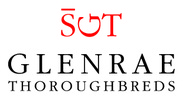Owning a horse is a privilege because it is a long-held dream for most people. Besides developing a strong bond of companionship, you can also exercise and teach younger family members a sense of responsibility. It's important to research what breeds are available, especially if you're a first-time horse buyer. Considering horse agistment and evaluating your own property and resources are also important. Taking ownership of a horse includes the following 6 considerations.
1) Diet
There is a lot to consider when calculating your horse's dietary requirements. Horses should be fed mostly roughage and fibre (fresh pasture, hay or cubes and hay pellets) with the addition of minerals and vitamins. A small amount of grain can be beneficial to overall health and provide a tasty treat. There should never be a compromise on the availability of optimum quality fresh water and good-grade grass or hay.
2) Environment
Maintaining a quality hair coat requires special tools, and hoof soles need to be cleared of nooks and crannies. Your farrier may need to trim horses' hooves every 6-8 weeks and replace their horseshoes based on their conformation and intended use.
4) Veterinary Care
It is important to have a veterinarian available for healthcare, which includes vaccinations, parasite control and yearly teeth check-ups. Emergency care plans should include transportation, whether to get your horse out of harm's way (fire, for example) or to receive hospitalisation.
5) Training
If you still have any energy after all that work, you may want to ride your horse. You may still need to break your horse before you can ride. In either scenario, you will benefit from taking riding lessons or pre-training your horse.
6) Where To Keep Your Horse
You can board your horse at a boarding facility or at home. Having your horse on your own property is a convenience, of course. Although you may have enough land for your horse, keeping it clean and feeding and watering it is hard work. A lack of equine company may also bore him.
At Glenrae Thoroughbreds, we recognise that horse ownership is one of the most rewarding decisions you can make. Our multi-facility stud offers a range of services, including horse agistment with stabling and feeding for your thoroughbred. For more information, contact us.
There is a lot to consider when calculating your horse's dietary requirements. Horses should be fed mostly roughage and fibre (fresh pasture, hay or cubes and hay pellets) with the addition of minerals and vitamins. A small amount of grain can be beneficial to overall health and provide a tasty treat. There should never be a compromise on the availability of optimum quality fresh water and good-grade grass or hay.
2) Environment
- Cleanliness is of the utmost importance, and if kept in a stall, the area should be cleaned at least once a day, preferably twice.
- Bedding - Straw and shavings are ideal not only for comfort but for soaking urine.
- When pasture access is not available, enrichment toys can prevent boredom. Turning out a horse with companions makes him happier and less likely to stall walk.
Maintaining a quality hair coat requires special tools, and hoof soles need to be cleared of nooks and crannies. Your farrier may need to trim horses' hooves every 6-8 weeks and replace their horseshoes based on their conformation and intended use.
4) Veterinary Care
It is important to have a veterinarian available for healthcare, which includes vaccinations, parasite control and yearly teeth check-ups. Emergency care plans should include transportation, whether to get your horse out of harm's way (fire, for example) or to receive hospitalisation.
5) Training
If you still have any energy after all that work, you may want to ride your horse. You may still need to break your horse before you can ride. In either scenario, you will benefit from taking riding lessons or pre-training your horse.
6) Where To Keep Your Horse
You can board your horse at a boarding facility or at home. Having your horse on your own property is a convenience, of course. Although you may have enough land for your horse, keeping it clean and feeding and watering it is hard work. A lack of equine company may also bore him.
At Glenrae Thoroughbreds, we recognise that horse ownership is one of the most rewarding decisions you can make. Our multi-facility stud offers a range of services, including horse agistment with stabling and feeding for your thoroughbred. For more information, contact us.

 RSS Feed
RSS Feed